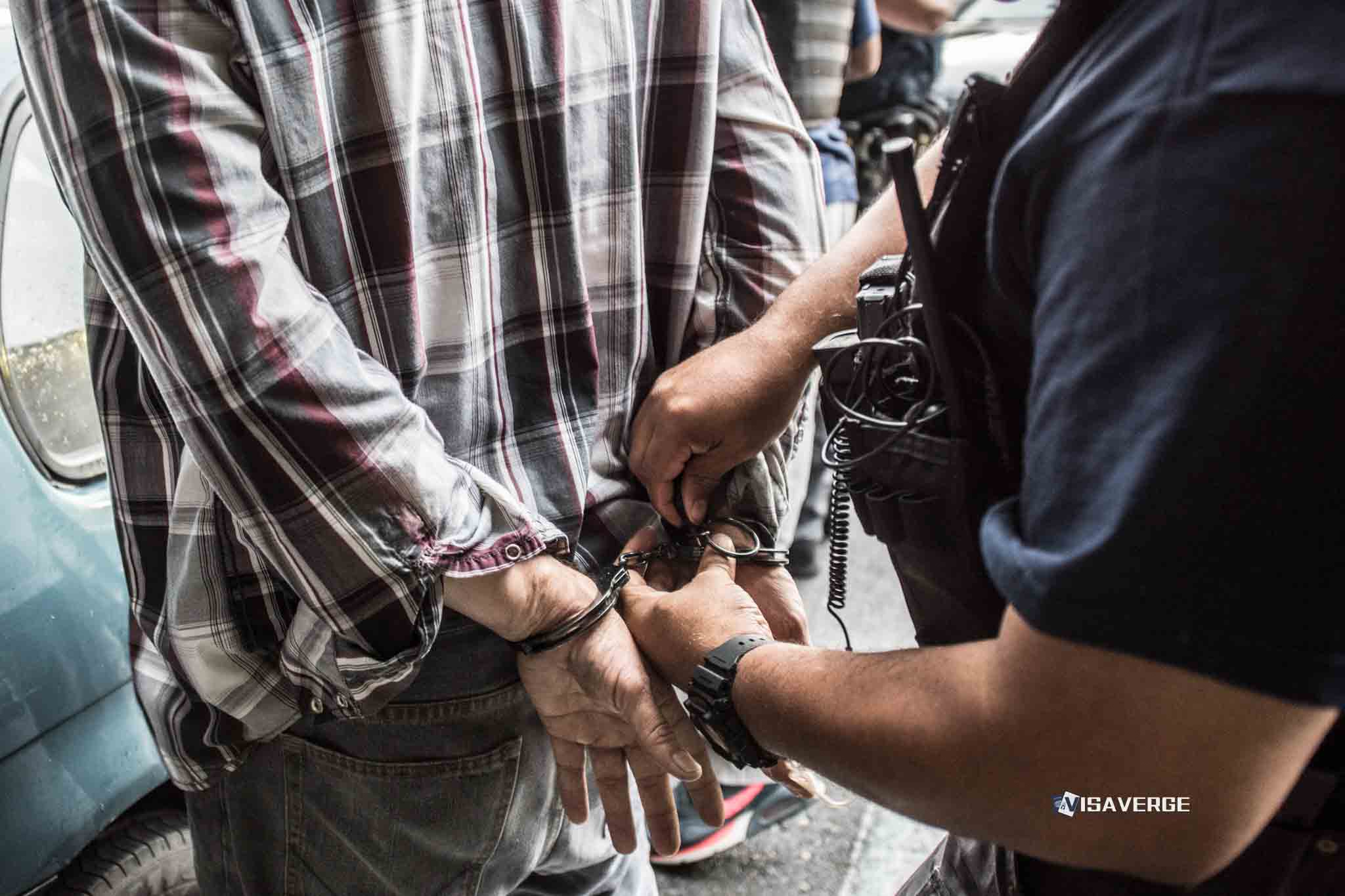Key Takeaways
• Stephen Miller directs ICE to arrest 3,000 undocumented migrants daily at day labor sites like Home Depot and 7-Eleven.
• April 2025 Pomona raid detained over a dozen laborers, sparking immigrant rights backlash and community fear.
• ICE agents report low morale and pressure amid aggressive, broad enforcement targeting all undocumented migrants regardless of record.
Purpose and Scope
This analysis examines the recent escalation in immigration enforcement led by Stephen Miller, focusing on the targeting of undocumented migrants at locations such as Home Depot and 7-Eleven. The scope includes a review of policy changes, enforcement methods, stakeholder perspectives, and the broader implications for migrant communities, businesses, and immigration officials. The aim is to provide a clear, fact-based overview of the current situation, supported by official data and expert commentary, to help readers understand the practical effects and possible future developments of these enforcement actions.

Methodology
The content draws on official statements, quantitative data, and reports from government meetings, as well as responses from advocacy groups and affected communities. Key findings are presented upfront, followed by a detailed breakdown of enforcement procedures, stakeholder analysis, and visual descriptions of recent operations. The analysis also compares current trends with past enforcement strategies and discusses potential legal and social outcomes. Data is sourced from government records, news reports, and advocacy organizations, with all statistics and claims attributed to their original sources.
Key Findings
- Stephen Miller, as White House Deputy Chief of Staff, has directed U.S. Immigration and Customs Enforcement (ICE) to sharply increase arrests of undocumented migrants, specifically at day labor gathering spots like Home Depot and 7-Eleven.
- The Trump administration has set a new daily arrest quota of 3,000, a significant jump from previous targets.
- ICE leadership and field agents report increased pressure, low morale, and fear of job loss if quotas are not met.
- Recent visible raids, such as the April 2025 operation at a Home Depot in Pomona, California, have led to the detention of over a dozen day laborers and sparked backlash from immigrant rights groups.
- The policy shift marks a return to broad, indiscriminate enforcement, moving away from previous priorities that focused on undocumented migrants with criminal records.
- Businesses like Home Depot and 7-Eleven face concerns about disruption, employee safety, and community relations.
- Immigrant communities are experiencing heightened fear and uncertainty, with advocacy groups ramping up legal support and “know your rights” campaigns.
Data Presentation and Visual Descriptions
Quantitative Data
- Arrest Goal: 3,000 undocumented migrant arrests per day (as of June 2025)
- Emergency Meeting: Held on May 20, 2025, in Washington, D.C., with 50 top ICE officials (25 Enforcement Removal Operations directors and 25 Homeland Security Investigations special agents)
- Recent Raid Example: In April 2025, over a dozen day laborers were detained at a Home Depot in Pomona, California
Visual Description of Enforcement Operations
Imagine a typical weekday morning in the parking lot of a Home Depot. Groups of day laborers gather, hoping to find work. Suddenly, marked and unmarked ICE vehicles arrive. Agents quickly move in, detaining individuals and checking immigration status on the spot. Those without proper documentation are handcuffed and taken to waiting vans. The scene is tense, with bystanders watching and some recording the events on their phones. Advocacy groups arrive soon after, distributing flyers with legal advice and hotline numbers.
Comparisons, Trends, and Patterns
Historical Context
- Under previous administrations, ICE enforcement focused mainly on undocumented migrants with criminal records.
- The current approach, led by Stephen Miller, represents a shift back to broad sweeps, targeting anyone suspected of being undocumented, regardless of criminal history.
- Day labor gathering spots like Home Depot and 7-Eleven have been targeted before, but the scale and explicit direction from the White House are new.
Trends
- Escalation in Enforcement: The daily arrest quota of 3,000 is much higher than previous averages, signaling a more aggressive approach.
- Visible Raids: Increased ICE presence at well-known day labor sites has led to more public and media attention.
- Internal Tension: ICE officials report confusion and frustration over shifting priorities and public messaging.
Patterns
- Targeted Locations: Operations focus on places where day laborers are known to gather, such as Home Depot parking lots and 7-Eleven stores.
- Early Morning Raids: Most actions occur early in the day, aiming to catch as many individuals as possible before they disperse.
- Immediate Processing: Detainees are quickly transported to ICE facilities for further processing and possible removal.
Evidence-Based Conclusions
Policy Implications
- For Undocumented Migrants: The risk of arrest has increased, especially for those seeking work at day labor sites. Many are now afraid to go out in public, even for basic needs.
- For ICE Personnel: The pressure to meet high arrest quotas has led to low morale and fear of job loss. Some officials feel the new approach is at odds with previous public messaging and may undermine trust in law enforcement.
- For Employers and Businesses: Home Depot and 7-Eleven face potential business disruption, negative publicity, and concerns about the safety of employees and customers.
- For Communities: The raids have created an atmosphere of fear and uncertainty, with many families worried about separation and deportation.
Legal and Ethical Concerns
- Immigrant rights organizations argue that targeting non-criminal migrants at day labor sites is unjust and may violate civil rights and due process.
- Experts warn that mass raids can erode trust between immigrant communities and law enforcement, making it harder to address serious criminal threats.
Stakeholder Perspectives
| Stakeholder | Perspective/Position |
|---|---|
| Stephen Miller/White House | Aggressive enforcement, high arrest quotas, focus on visible day labor sites |
| ICE Leadership | Demoralized, pressured, concerned about legality and public messaging |
| Immigrant Rights Advocates | Condemn raids, urge rights education, highlight humanitarian concerns |
| Business Owners (Home Depot, 7-Eleven) | Concerned about business disruption, employee and customer safety |
| Affected Migrants | Experiencing fear, uncertainty, and increased risk of detention |
Step-by-Step Enforcement Procedures
- Intelligence Gathering: ICE identifies locations with high numbers of day laborers or suspected undocumented migrants, such as Home Depot parking lots and 7-Eleven stores.
- Operational Planning: ICE coordinates the deployment of marked and unmarked vehicles, planning surprise raids to maximize detentions.
- Execution: Agents arrive early in the morning, detain individuals on-site, and check immigration status immediately.
- Processing: Detainees are transported to ICE facilities for further processing and possible removal proceedings.
- Community Notification: Immigrant rights groups respond quickly, providing legal advice and support hotlines (for example, 909-361-4588 in Pomona).
Comparative Analysis: Past vs. Present Enforcement
- Past Focus: Previous ICE operations, especially under President Biden, prioritized undocumented migrants with criminal records. Public messaging emphasized targeting “criminal aliens.”
- Current Focus: The new approach, driven by Stephen Miller, targets all undocumented migrants, regardless of criminal history. The daily arrest quota and visible raids at places like Home Depot and 7-Eleven mark a significant policy shift.
- Internal Dissent: Some ICE officials have expressed confusion and frustration, noting that the new strategy contradicts earlier public statements and may harm community relations.
Limitations of Current Policy
- Legal Challenges: Civil rights groups are preparing to challenge the legality of mass sweeps and the targeting of non-criminal migrants.
- Resource Allocation: Focusing on mass arrests may divert resources from addressing serious criminal threats.
- Community Trust: Aggressive enforcement can erode trust between immigrant communities and law enforcement, making it harder to gather information about real criminal activity.
- Sustainability: Internal dissent within ICE and potential public backlash may affect the long-term sustainability of the current approach.
Policy Efficacy and Future Outlook
- Continued Escalation: The Trump administration is expected to maintain or increase pressure on ICE to meet or exceed the 3,000 daily arrest goal.
- Legal and Social Pushback: Advocacy groups are ramping up “know your rights” campaigns and legal support hotlines. Legal challenges are likely, especially if due process or civil rights are violated.
- Uncertainty for Migrants: Many undocumented migrants now avoid public places, including day labor sites, out of fear of arrest. This can lead to economic hardship and family separation.
- Business Impact: Home Depot and 7-Eleven may see fewer day laborers and customers, affecting daily operations and community relations.
Practical Guidance for Affected Individuals
- Know Your Rights: Immigrant rights groups urge individuals to remain calm during ICE encounters, not to sign any documents without legal advice, and to contact legal support hotlines for help.
- Legal Aid: Organizations like the National Immigration Law Center and the American Civil Liberties Union (ACLU) offer resources and support for those facing detention or deportation.
- Community Support: Local advocacy groups provide information, legal clinics, and emergency hotlines (such as 909-361-4588 in Southern California).
Official Resources
For the latest official statements and updates on enforcement actions, visit the U.S. Immigration and Customs Enforcement (ICE) website. This site provides information on current policies, enforcement priorities, and contact details for ICE field offices.
Authoritative Perspectives
Analysis from VisaVerge.com suggests that the current enforcement strategy, while intended to deter undocumented migration, may have unintended consequences. These include increased fear among immigrant communities, strained relations between law enforcement and the public, and possible legal challenges that could limit the effectiveness of mass raids. Experts recommend a balanced approach that targets serious criminal threats while respecting due process and civil rights.
Conclusion
The recent escalation in immigration enforcement, led by Stephen Miller and focused on locations like Home Depot and 7-Eleven, marks a significant shift in U.S. policy. With a new daily arrest quota of 3,000, ICE is under intense pressure to deliver results, leading to visible raids and increased fear among undocumented migrants. While the Trump administration frames this as a necessary step to remove “Biden illegals,” critics argue that the approach is unjust, disruptive, and potentially unlawful.
The situation remains fluid, with ongoing enforcement actions, legal challenges expected, and significant implications for all stakeholders. Migrant communities, businesses, and ICE personnel are all affected by the new policy, which may face sustainability issues if internal dissent and public backlash continue to grow.
Actionable Takeaways
- For Migrants: Stay informed about your rights, avoid risky locations if possible, and seek legal support if detained.
- For Businesses: Prepare for possible ICE presence, communicate with employees about safety, and consider community relations strategies.
- For Advocates: Continue to educate communities, provide legal resources, and monitor enforcement actions for potential rights violations.
- For Policymakers: Consider the broader impacts of aggressive enforcement, including legal, social, and economic consequences.
For more information and updates, consult the official ICE website and trusted advocacy organizations. If you or someone you know is affected by recent raids, contact local legal aid hotlines for immediate assistance.
Learn Today
Stephen Miller → White House Deputy Chief of Staff directing aggressive immigration enforcement policies targeting undocumented migrants.
ICE → U.S. Immigration and Customs Enforcement agency enforcing immigration laws and conducting arrests and removals.
Day Laborer → Worker who seeks temporary employment, often gathering at public sites like Home Depot parking lots.
Arrest Quota → Mandated daily goal of arrests set by administration to increase immigration enforcement numbers.
Due Process → Legal principle requiring fair treatment through judicial system before depriving individuals of rights or liberty.
This Article in a Nutshell
Stephen Miller orders ICE to increase arrests to 3,000 daily targeting day laborers at Home Depot and 7-Eleven. Raids spark fear, disrupt businesses, and cause internal ICE tension. Human rights groups challenge legality, warning this broad enforcement threatens immigrant communities and undermines trust in law enforcement.
— By VisaVerge.com













